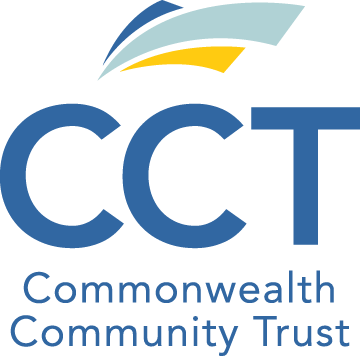Military Survivor Benefit Plan First-Party PSNT
A Military Survivor Benefit Plan First-Party PSNT is a trust established with annuity payments from the Survivor Benefit Plan for the benefit of a dependent child who has special needs.
Joining Documentation
When an individual with special needs receives funds,
it is important to give thoughtful consideration to the following:
-
Does the individual with special needs depend on Supplemental Security Income (SSI) and Medicaid benefits now or will there be a need to apply in the future?
If funds are received directly, the individual’s SSI and Medicaid eligibility could be jeopardized due to the $2,000 countable resource limit. Once these benefits are lost, the funds will be used to pay expenses that otherwise could have been covered by SSI and Medicaid benefits.
By establishing a First-Party PSNT with Commonwealth Community Trust (CCT), SSI and Medicaid benefits are not jeopardized.
-
Due to the nature of the individual’s disability, could the individual benefit from a trust administrator to help manage funds?
The First-Party PSNT provides fiscal oversight to ensure that the funds are used for the sole benefit of the Beneficiary, provides professional management and investment of funds, and can be used to enrich the quality of life for the Beneficiary.
How Funds in the Trust Can Be Used
The funds can be used to pay for expenses that will enhance the quality of life for the Beneficiary. Disbursements can be requested from the trust by a Primary or Secondary Advocate. Bills are paid by check to vendors or reimbursed to the Advocate or in certain circumstances a credit card is made available and funded by the Beneficiary’s trust account.
For more information, see our Disbursement Information Manual.
-
Disbursement requests are reviewed and approved based on the following criteria:
- Is the request for the benefit of the Beneficiary?
- Are these adequate funds in the trust to cover the request?
- Is the request prudent?
- What other income or resources are avaliable to the Beneficiary?
- Was supporting documentation provided?
-
Examples include, but are not limited to:
- Medical and Dental Services not covered by insurance
- Assistive Technology
- Eyeglasses, Hearing Aids, and Prosthetic Devices
- Pre-paid Burial Expenses
- Computer and Internet Services
- Education Expenses
- Caregiver Expenses
- Home Modifications
- Clothing and Furniture
Additional Resources
Objectives of the Trust
The Objectives of the Trust form is intended to share the goals for the beneficiary’s trust, how long the trust is anticipated to last, and the vision for how the trust should be used.
First-Party Remainder Policy
The Remainder Policy determines what happens to the remaining trust funds upon the death of the Beneficiary.
Important Definitions
-
Pooled Trust
Each Beneficiary’s funds are placed in an individual sub-account. The cash assets from all sub-accounts are then “pooled” together, and are invested and managed by True Link Financial Advisors. True Link Financial Advisors is the investment manager to the Trust, not the individual beneficiaries. True Link Financial Advisors does not provide investment advice or services to the individual beneficiaries of the Trust.
Pooling the funds is intended to reduce administrative fees with the goal of increasing the principal for investment purposes. Account statements are available online and mailed quarterly.
-
Grantor
The Grantor of a First-Party PSNT can be the Beneficiary with special needs or someone acting on behalf of the Beneficiary such as the parent(s), grandparent(s), the Court or Legal Guardian.
The funds are the Beneficiary’s own funds from a personal injury award, workers’ compensation claim, Social Security back payment, inheritance, or savings.
-
Beneficiary
The Beneficiary is someone with special needs for whose benefit the trust was created.
-
Advocate
The Advocate(s) is an important part of the Beneficiary’s team and works closely with CCT staff. The Advocate(s) is authorized to make disbursement requests by signing and submitting the Payment Request Form to CCT and may receive confidential financial information about the Beneficiary’s sub-Account.
The Advocate(s) is usually named by the Grantor(s) on the CCT Joinder Agreement (the legal document to join the trust), and may be the Beneficiary, a Guardian, Conservator, Power of Attorney, family member, case worker, friend, and/or someone who is trusted and familiar with the needs of the Beneficiary.
However, CCT has sole discretion to decide what distributions are in the Beneficiary’s best interest and permitted under the terms of the trust, as well as when to share information.
-
Remainder Beneficiary
For a Beneficiary who never received Medicaid benefits:
After the customary CCT administrative fees, Capital First Trustee fees and True Link Financial Advisors, LLC, investment management fees are disbursed the remaining funds are distributed as designated in the Joinder Agreement, the legal document to join. The Grantor can designate Primary and Contingent Successor Beneficiaries who will receive the funds. The Grantor can designate one person, several people, or a nonprofit organization like CCT to receive some or all of the remainder funds. The named remainder beneficiaries cannot be changed.
Please see Section 8 in the First-Party Pooled Special Needs Trust Joinder Agreement on“Distributions Upon the Death of the Beneficiary” for further details.
For a Beneficiary who received Medicaid benefits:
The First-Party Pooled Special Needs Trust is a Medicaid payback trust for Beneficiaries who receive Medicaid. Upon the death of the Beneficiary, there are specific rules for what happens to the remainder. These rules vary from state to state. In general, the Medicaid office for each state in which the Beneficiary received Medicaid benefits is notified and CCT requests information detailing the total amount that Medicaid has paid on behalf of the beneficiary for medical expenses.
CCT’s policy is followed to the extent that it complies with each state’s Medicaid Policy.
1. When Medicaid is owed less than the amount remaining in the trust:
Example – If there is $50,000 remaining in the trust and Medicaid is owed $25,000, the Successor Beneficiary(ies) per the Joinder Agreement will receive the balance after Medicaid is reimbursed and administrative fees are deducted.
2. When Medicaid is owed more than the amount remaining in the trust:
Example – If there is $50,000 remaining and Medicaid is owed $60,000, the remainder will be retained by CCT to support its mission to serve people with special needs if allowed by the state’s Medicaid policy.
IMPORTANT: Pre-need funeral and burial arrangements for the Beneficiary should be made and paid for in advance, as disbursements cannot be approved once the Beneficiary has passed away.It is important that CCT is notified by the Grantor or Advocate at the time of death of the Beneficiary. CCT is not notified by any other agency. A copy of the death certificate is requested when it becomes available.
Final Steps to Take
Submit certified Special Needs Trust paperwork to the following Defense Finance and Accounting Service address:
Defense Finance and Accounting Service
U.S. Military Retired Pay
8899 E. 56th Street
Indianapolis, IN 46249-1200
-
For Currently Serving military members who are making a Survivor Benefit Plan election for a special needs trust:
Prior to making the Survivor Benefit Plan election to a special needs trust: 1) establish the trust account at Commonwealth Community Trust (CCT); 2) obtain the Tax Identification Number from CCT*; and 3) obtain the attorney’s Special Needs Trust Certification form from CCT. Make the election with your Service and choose “Spouse and Child” or “Child Only.” Your election of Survivor Benefit Plan benefits prior to retirement is processed by your Service and, once approved, is irrevocable.
-
For Currently Serving military members who are making a Survivor Benefit Plan election:
To be eligible to elect the special needs trust as the beneficiary under the Survivor Benefit Plan, the retiree must have previously elected “Spouse and Child” or “Child Only” coverage for the disabled child under the Survivor Benefit Plan. If the service member is alive, and if he or she has previously elected “Spouse and Child” or “Child Only” coverage under the Survivor Benefit Plan, he or she may make the designation to direct payment on the behalf of a beneficiary to a special needs trust at any time.
After the death of a member or retiree, if the service member or retiree had elected “Spouse and Child” or “Child Only” coverage under the Survivor Benefit Plan, any surviving parent, grandparent, or court-appointed legal guardian may make the designation to have payments made to a special needs trust on the behalf of a beneficiary.
Required Documentation by the Defense Finance and Accounting Service (DFAS):
1. A written statement of the decision to have the annuity paid to the special needs trust that includes the name of the dependent child, and the name and Tax Identification Number* for the trust (provided by your Service or this standard form from CCT)
2. Attorney’s Special Needs Trust Certification
Special Relief:
In the event that DFAS is not able to make the change in Survivor Benefit Plan election (for example, if the retiree did not originally elect “Spouse and Child” or “Child Only” coverage), a military member or family of deceased can apply to the Service Board for Correction of Military Records for relief by submitting a DD Form 149 to the Service Board. Along with DD Form 149, you will need the same information necessary to change the beneficiary of an existing election.
For those with a child already receiving a Survivor Benefit Plan annuity, these steps should allow the child to regain eligibility for SSI/Medicaid. For those who chose not to designate their child as a Survivor Benefit Plan beneficiary previously, there may be a nominal fee for the reinstatement once obtained.
*The Tax Identification Number for CCT is found on page 1 of the Military Survivor Benefit Plan Pooled Special Needs Trust Joinder Agreement.
Have questions?
If you have any questions about the process, please don’t hesitate to call our office at 804-740-6930 or email us at info@trustcct.org. Our staff is available to answer your questions Monday through Friday from 9:00 am to 5:00 pm Eastern Standard Time.
Mailing Address:
Commonwealth Community Trust
P.O. Box 29408
Richmond, VA 23242-0408

Dan, Brother and Advocate of a CCT Beneficiary
"CCT has been a blessing to our family. CCT has provided a sense of order, organization, trust, and leadership in helping to provide and protect the well-being of my younger sister. I would recommend CCT to anyone, and I already have." — Dan, Brother and Advocate of a CCT Beneficiary

Dustin, CCT Beneficiary
"I have had nothing but exceptional service from this company, they take their time to help with my needs and make sure I have what I need." — Dustin, Beneficiary of CCT
Cathy, CCT Beneficiary
"With the help of CCT I was able to purchase my Dream vehicle. Emily at CCT was/is a HUGE help! It was a very smooth transaction." — Cathy, Beneficiary of CCT
Grandmother of Beneficiary Kobe
"CCT made getting the wheelchair equip van we so much needed for our grandson the easiest purchase ever. Thank you CCT!!!" — Grandmother of Beneficiary Kobe
Rhonda, Mother and Advocate of a CCT Beneficiary
"CCT has been amazing. Very helpful with guiding us through this process." — Rhonda, Mother and Advocate of a CCT Beneficiary
Nancy, Grandmother and Advocate of a CCT Beneficiary
"CCT has been wonderful in serving the financial needs of my grandson. They are always prompt in answering questions and suggesting how we can make something happen for him. He just turned 18 this year and we still plan on using this service." — Nancy, Grandmother and Advocate of a CCT Beneficiary
Dan, Brother and Advocate of a CCT Beneficiary
"CCT has been a blessing to our family. CCT has provided a sense of order, organization, trust, and leadership in helping to provide and protect the well-being of my younger sister. I would recommend CCT to anyone, and I already have." — Dan, Brother and Advocate of a CCT Beneficiary
Dustin, CCT Beneficiary
"I have had nothing but exceptional service from this company, they take their time to help with my needs and make sure I have what I need." — Dustin, Beneficiary of CCT
CCT
Trusts
Professionals
Clients

*Disclaimer Statement: CCT is not a chartered bank or trust company, or depository institution. It is not authorized to accept deposits or trust accounts and is not licensed or regulated by any state or federal banking authority.
All Rights Reserved | Commonwealth Community Trust
